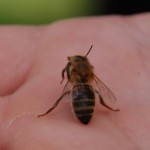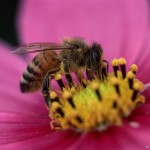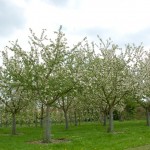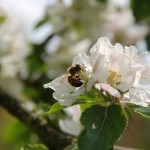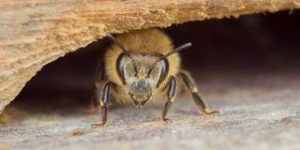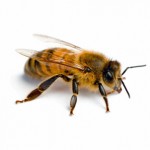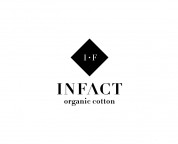Bees & Men
Bees are more important to us than most people comprehend. It is known that bees produce honey and wax from which you can make candles and ointments. But did you know that bees are an indispensable part of our food supply?
Approximately one third of the world’s food supply is dependent on animal pollination. With the increasing prosperity the crops – fruit and vegetables – that are dependent on animal pollination have become more important, than crops that are not, like grain and mays.
During the second half of the last century the agriculture production has increased exponentially. This is not to say that this has come from the increase in the agricultural area, but especially because of the huge increase in the yield per hectare. The technological growth within the agricultural community has led to an increase in production, but to monoculture in big areas as well.
The honeybee is the foremost animal ‘pollinator’. It can cover an area up to seven kilometers around the hive. Within modern agriculture the honeybee has become invaluable. The large fields are wanting for the biodiversity that the wild bees and other pollinators so desperately need.
It shouldn’t come as a surprise that nearly all farmers used to keep bees. This goes back a long way. Charlemagne (756-814) obliged his leaseholders to keep bees. He gave the clergy the right to demand a honey tax from the farmers. The farmers became obliged to keep bees because of this. Charlemagne excised laws that protected the bees and he created several different types of beehives. The financial worth of two hives was around the price of a good milk cow around that time. Charlemagne made the great bloom of the beekeeping profession possible, this only ended around 1550.
The last one hundred years the amount of beekeepers has decreased drastically. Directly following the Second Great War there were around 32.000 organized beekeepers, in 1967 there were only 7.100. After that there was a rise in the number of beekeepers again, but this growth turned out to be temporary. From the mid-80s on, their number has been steadily decreasing. At the end of the 90s there were around 16.000 beekeepers, but now their number has fallen to 6.500, a historical low point. This low has multiple causes. Firstly since it is hard, if not impossible, to make a living from beekeeping in Holland, it is more of a side-project or hobby. Secondly the beekeeper population is aging. The average age of the Dutch beekeeper is about 60.
